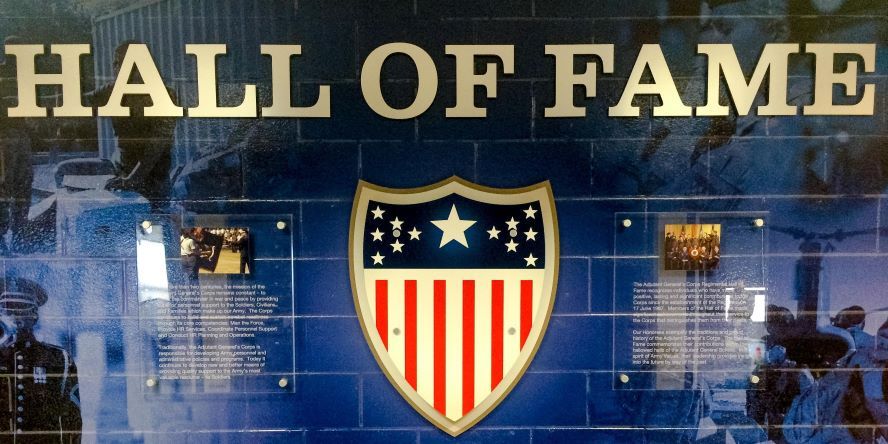AG Corps HOF & DMOC Classes of 2014
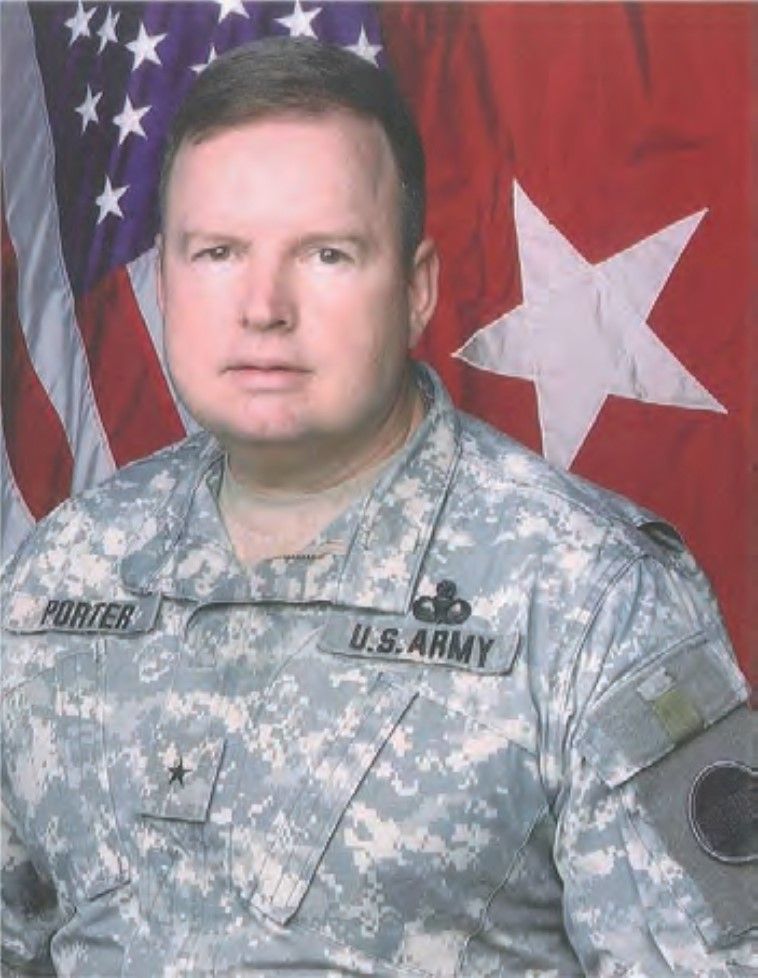
BG (Ret) E. Eric Porter consistently epitomized the finest leadership qualities and commitment to selfless service throughout his distinguished career. His untiring devotion to duty and constant care for Soldiers enabled him to accomplish all missions successfully. He coordinated participation in the Army’s G-1 pilot program for sexual assault prevention strategies. He provided guidance and resources to execute the I A.M. (Intervene, Act, Motivate) Strong program to eliminate sexual assaults across the force. He was also a significant contributor to the transformation and development of this program into the Sexual Harassment / Assault Response and Prevention (SHARP) Program in use today. BG (Ret) Porter was a frequent and prolific contributor to the transformation efforts of Forces Command. He executed a very successful FORSCOM leader development program with the Center for Creative Leadership, providing great leadership training to high-performing MAJs, LTCs, and Civilians. BG (Ret) Porter possessed a keen grasp of Army policies and organizational issues and was a key contributor to the development of AR 600-20, Army Command Policy, and the formative stages of the Chief of Staff’s Army Enterprise Initiative.
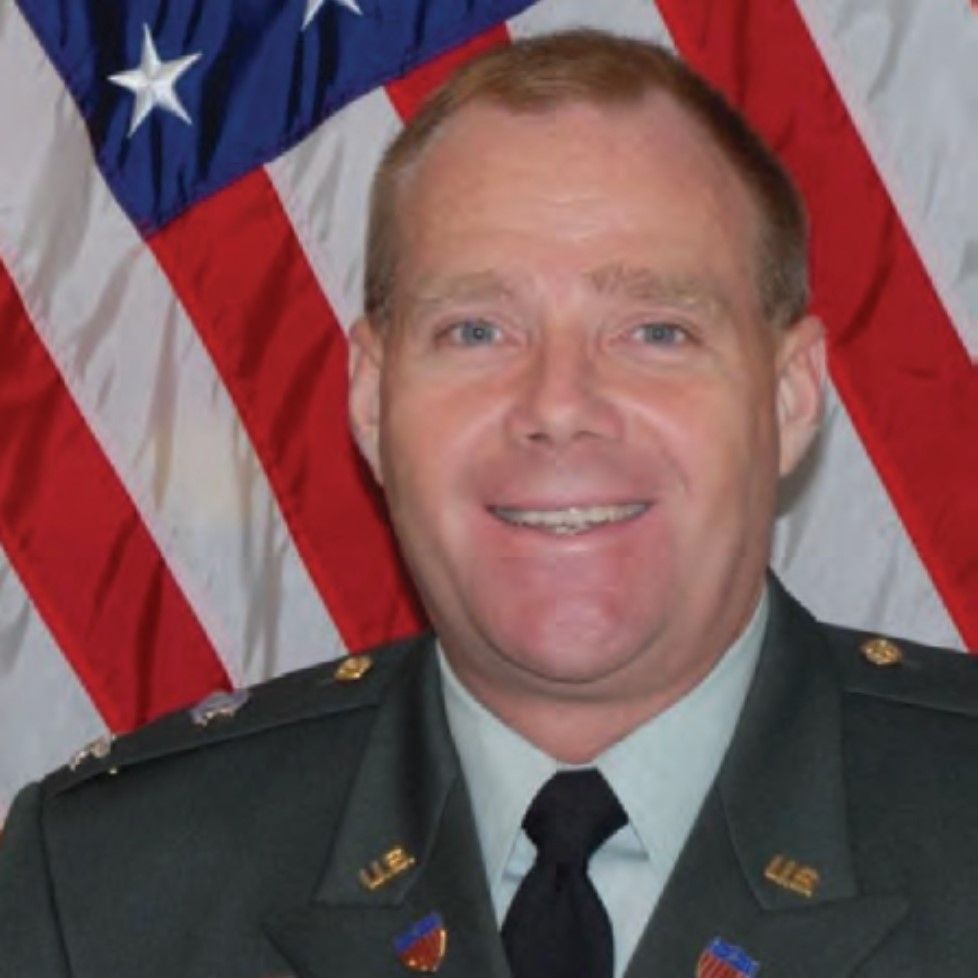
COL (Ret) Jon E. Finke served as the Director of Enlisted Personnel Management at the U.S. Army Human Resources Command, where he was directly responsible for maintaining the readiness of the U.S. Army through the complete lifecycle management of nearly 450,000 Enlisted Soldiers in the Active force. He spearheaded all Enlisted management actions with the Army G-1, Army Commands, and Basic Branch Proponents to improve the health and professional development of the Enlisted force. COL (Ret) Finke served as the Adjutant General for Forces Command, consisting of over 725,000 Active and Reserve Component Soldiers. He was directly responsible for personnel core functions, including Enlisted and Officer strength management, Active and Reserve readiness management, casualty operations, personnel operations, personnel policy, and the Power Projection Enhancement Team. Since retiring in 2010, COL (Ret) Finke has worked as the Chief of the Reserve Appointments and Active Guard and Reserve Accessions Branch, where he is the principal civilian advisor for the Army’s Reserve Appointments and Active Guard and Reserve Accession Programs, including the Officer Candidate Program and recall programs worldwide for commissioned Officers and Warrant Officers. COL (Ret) Finke is currently the Chief of the Operations Management Division, working under the Director of Enlisted Personnel Management, Human Resources Command, responsible for supporting the Army’s Enlisted Personnel Management Systems.

COL (Ret) Wayne H. Morris was awarded our nation’s second-highest award for valor, the Distinguished Service Cross, while commanding a rifle platoon as a First Lieutenant in combat in Vietnam. After commanding an AG Company and a Military Entrance Processing Station, he served as the Chief of Headquarters Department of the Army Awards and Decorations Policy Section. Here, COL (Ret) Morris came across several unjustly disapproved awards. He was singularly instrumental in ensuring these awards were processed accordingly. During his assignment as an action officer in the Officer Policy Division, Department of the Army G1, COL (Ret) Morris was responsible for Army policy development in officer education and training, the Army proponent system, the Army Education Requirements Board, and officer professional development. COL (Ret) Morris developed a more accurate officer forecast and saved considerable officer resources. COL (Ret) Morris completed, briefed, and staffed the first Army proponent system regulation for approval, which has left lasting contributions to the Army Personnel system.
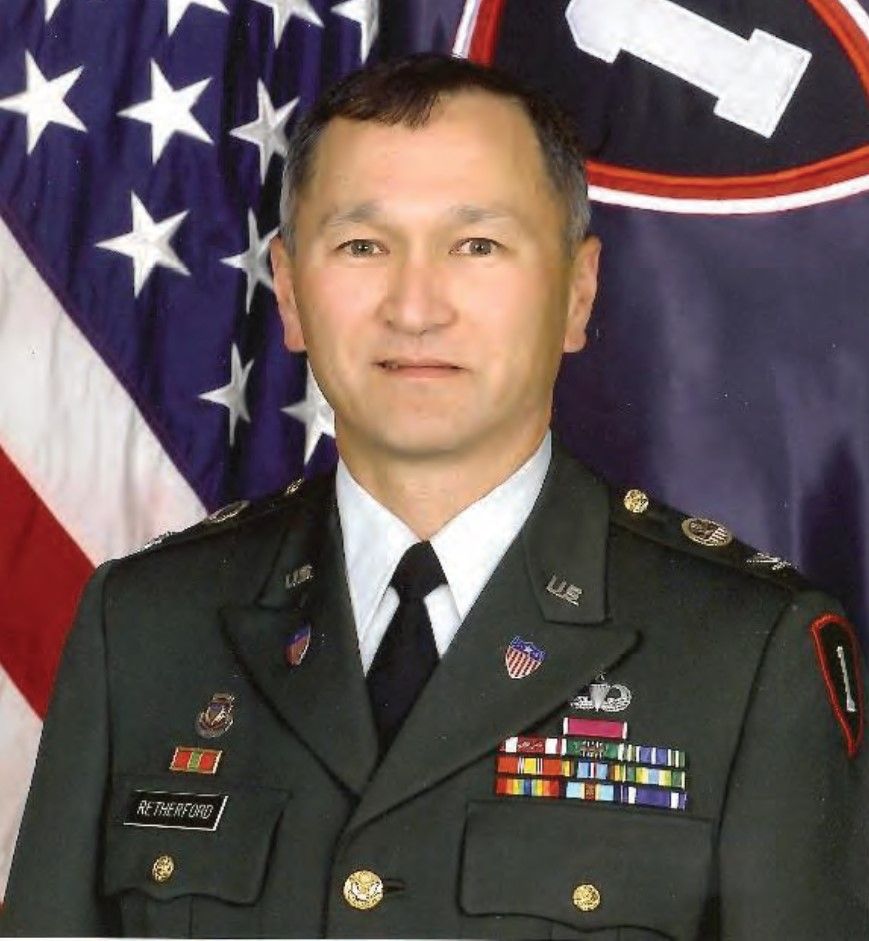
COL (Ret) Samuel B. Retherford served in many critical positions, including Commander, Personnel Services Company; Battalion Commander, 4th Personnel Services Battalion; 1st Infantry Division G1; and as Commander, 1st PERSCOM. He was responsible for establishing the one-stop reception center at Fort Carson, CO, executing the personnel management effort during the 4th Infantry Division move from Fort Carson to Fort Hood, TX, and supported the 1st Infantry Division’s deployment to Bosnia. During his service in Europe, COL (Ret) Retherford created protocols and training to protect Soldiers and Civilians during the first anthrax scares in Germany following 9/11. He also fielded the Common Access Card system throughout Europe, and his unit served as the testbed for the Army’s transition from SIDPERS-3 to eMILPO. Since retiring in 2004, COL (Ret) Retherford has been appointed to the Senior Executive Service, where he has served in many significant human resources positions, including Deputy Assistant Secretary of the Army (Military Personnel); DoD Director, Officer and Enlisted Personnel Management, Deputy Assistant Secretary of the Army (Manpower and Reserve Affairs); and currently as Principal Deputy Assistant Secretary for Human Resources and Administration, Department of Veteran’s Affairs.
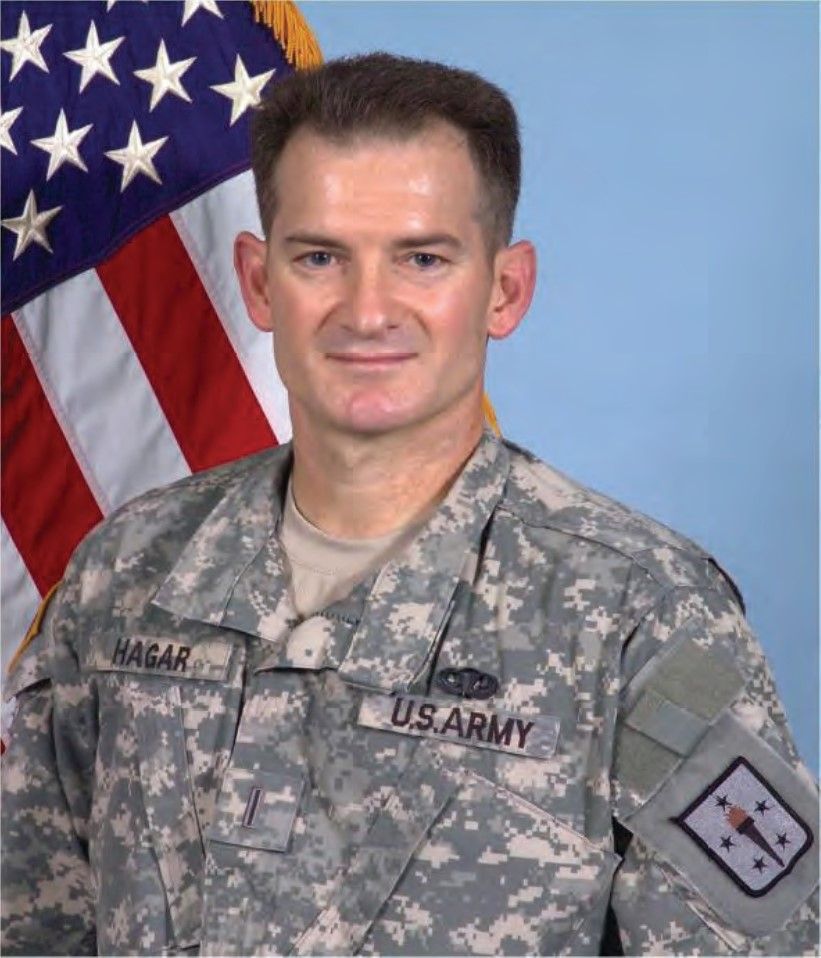
CW5 (Ret) Scott B. Hagar has made positive, lasting, and significant contributions throughout his 31 years of dedicated service to the Adjutant General’s Corps, serving as an Enlisted Soldier and Warrant Officer. In May 2004, he was selected as the Assistant Executive Officer for the Commanding General of Forces Command (FORSCOM). During his tenure with Forces Command, CW5 (Ret) Hagar became the subject matter expert on aviation flight planning and coordination. The FORSCOM CG specifically deployed CW5 (Ret) Hagar to assist with the transition of the first American International Security Assistance Force (ISAF) in Afghanistan. As Chief Warrant Officer of the AG Corps from 2009 to 2011, CW5 (Ret) Hagar met all accession goals while growing the Human Resources Warrant Officer population to meet increasing Army demands and requirements. He vastly improved the quality of applicants and continued to target Warrant Officer recruiting efforts toward the top three percent of the AG NCO Corps. He worked with Human Resources Command to increase the percentage of Warrant Officers who have deployed to above 92%. CW5 (Ret) Hagar traveled extensively throughout the Army’s formations and installations visiting active and reserve component units. During these visits, he provided valuable professional development sessions and gathered essential feedback to enhance and improve the AG Warrant Officer Corps.
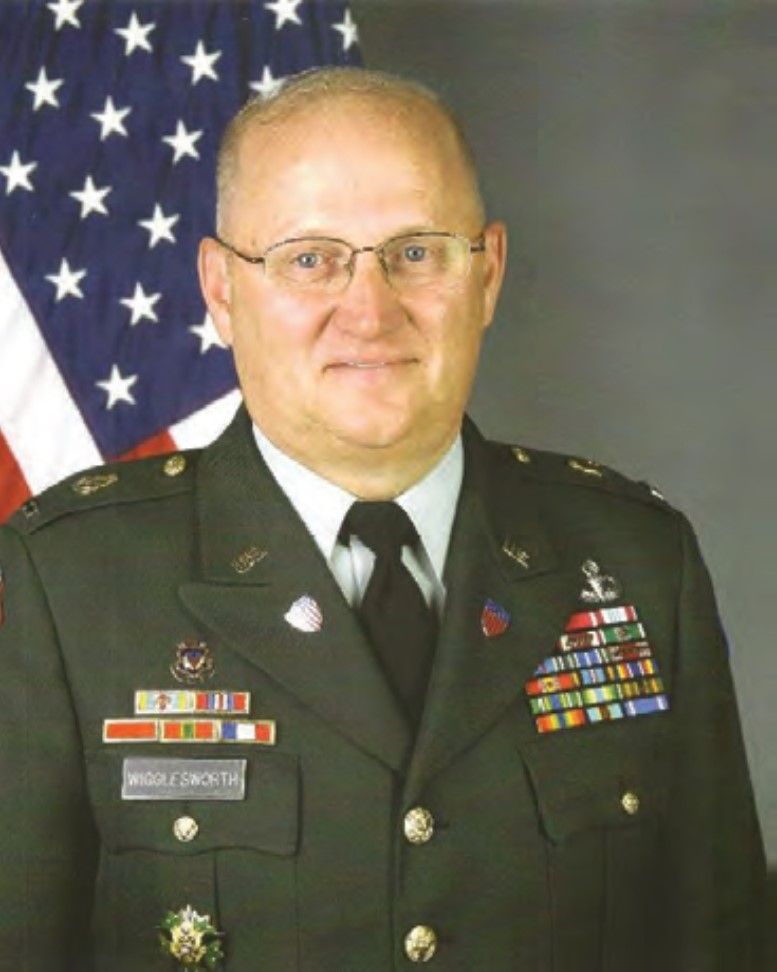
CW5 (Ret) Charles T. Wigglesworth’s illustrious Army career covered four decades, from the Vietnam War era to the Global War on Terror. CW5 (Ret) Wigglesworth started his career by enlisting in the Adjutant General’s Corps. His first assignment as an AG Warrant Officer was as the Chief, Records Division in Karlsruhe, Germany. In a later assignment, the Fort Rucker AG placed him in charge of several Divisions in the AG Directorate because of his known ability to quickly achieve results and his well-documented deep level of expertise in Army HR. CW5 (Ret) Wigglesworth’s outstanding record of performance and achievement was also reflected by his selection for promotion to CW4 from below the zone, an achievement that very few AG Warrant Officers can claim. Following his promotion to CW5 in 2003, he was selected to serve as the first Chief Warrant Officer of the Adjutant General’s Corps. In 2005, CW5 (Ret) Wigglesworth was then selected to serve as the Deputy Commandant of the Warrant Officer Career College (WOCC) in Fort Rucker, AL; this is significant because this position goes to one of the most deeply respected Warrant Officers in the entire Warrant Officer Corps.
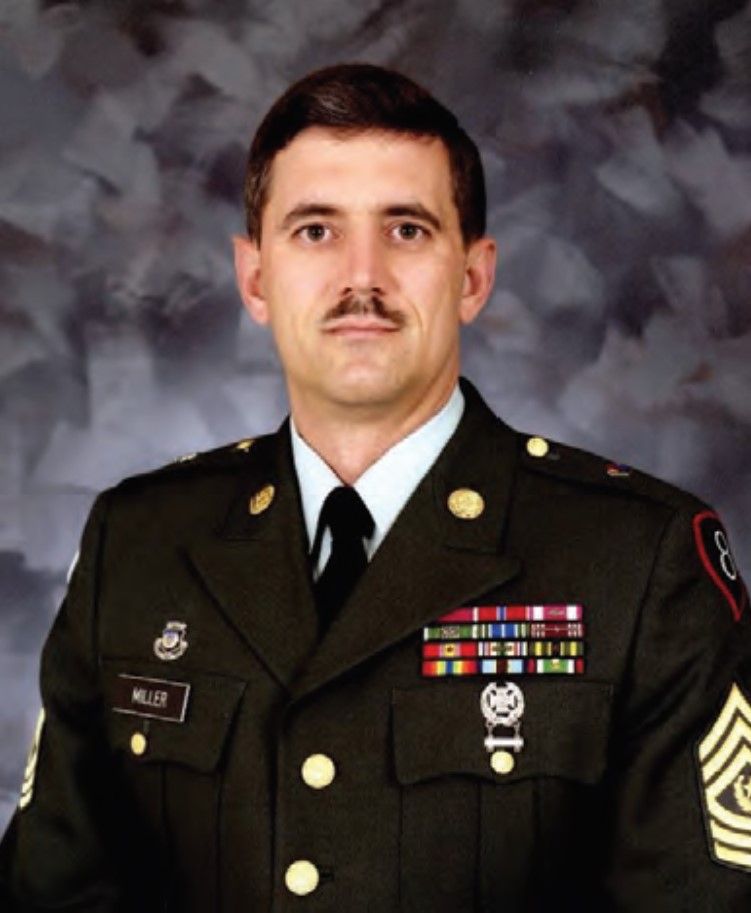
CSM (Ret) Keith R. Miller’s career spans the full range of the Army and Adjutant General’s Corps units and positions. Starting as a Company Clerk, he rapidly advanced through the ranks to the highest enlisted AG leadership position as the Command Sergeant Major of the U.S. Army’s Total Personnel Command (PERSCOM). Every one of CSM (Ret) Miller’s promotions, from E-2 to E-9, was an accelerated promotion (below the zone), enabling him to become one of the youngest Sergeants Major in the Army, achieving this rank before his 18th year of service. CSM (Ret) Miller was a key leader in the organization and activation of the newly formed 3rd Personnel Group. As its first CSM, he was responsible for organizing and integrating units from the Active, National Guard, and USAR Components, conducting requisite training for all elements, and deploying over 1,000 Soldiers to the combat zone in support of Operations Desert Shield and Desert Storm. CSM (Ret) Miller combined his personal skills with his exceptional technical, tactical, and organizational competence to design and provide essential go-to-war training in a very compressed time window. He achieved the highest standards because of his comprehensive understanding of personnel doctrine, personnel and administrative tasks and functions, and policies and procedures. This critical training resulted in extremely effective wartime PSS for units deployed to over 100,000 square miles of Saudi Arabia and Kuwait. During his wartime duty performance, BG Thomas Sikora, the ARCENT PERSCOM Commander, described CSM (Ret) Miller as an outstanding leader and an ideal role model with extraordinary technical competence.
AG Corps Distinguished Member of the Corps (DMOC)
Class of 2014
Mr. Samuel B. Retherford (SES)
MG Barrye L. Price
BG Margarett B. Barnes
COL (Ret) Wayne H. Morris
LTC (Ret) George J. Piccirilli
CW5 (Ret) Scott B. Hagar
CW5 (Ret) Ronald D. Mavity
CW5 (Ret) Edwin Nievesbeauchamp
CW5 (Ret) Janice E. Ready
CW4 (Ret) Percy D. Butler
CW4 Lisa M. Guynn
CW4 (Ret) Rafael A. Santos
CSM Christopher D. Culbertson
CSM (Ret) Jane H. Cunningham
CSM (Ret) Harold B. Blount
CSM (Ret) Keith R. Miller
SGM Kenneth L. Jackson
SGM Jerome S. Rice
SGM (Ret) Stan Ashford
SGM (Ret) John H. Heinrichs
SGM (Ret) Gabriella Russum
SGM (Ret) Frank Shaffery
Mrs. Martha Carden Gilchrist
Mrs. Lois E. Stevens
